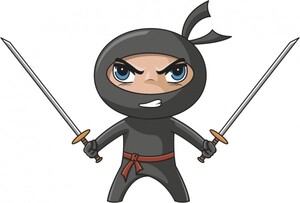This left me in awe of the intelligence behind the victim. Sophie is without a doubt an expert in her own field. Experts should be talking to her and giving her the platform that will benefit others.
I try hard to understand the personal issues of people with gender identification. I hope you can appreciate this is difficult for someone who was raised in the 60/70’s and doesn’t have the same identification issues. It wasn’t until I found out my offspring was gay that I understood just how damaging being homophobic was. I was not a vindictive homophobe, but then you don’t have to be physical to cause harm.
I think there is a lot of credence to her opinion of putting people into boxes. This causes so many mental issues with growing kids, and has done for a very long time. We really need to find a way to help kids be happy with who they are and not pander to the whims of the crowd.
Just for reference as this incites comments. I have never mistreated my kids. My initial reaction to finding out that I was the parent of someone gay was only ever about seeking to help in anyway I can. I could never fathom any parent that wants to hurt a son/daughter for not being what they want them to be.



Definitely not going to disagree with you on that as I’ve experienced it myself plenty of times, especially anything to do with programming.
Does neutrality actually help in achieving that goal though? Isn’t it just making the stereotyping worse? Let’s say purely as an example you were doing IT support and the person you were helping had no idea who you were, their just going to assume a stereotypical dorky cis white man helped them with the problem. Whereas if they knew, let’s say a cis black woman helped them, it’ll atleast to a small degree help break that stereotype. Maybe I’m just be overly optimistic here though, I’d like to think most people wouldn’t care either way, but if there is no representation at all people will just default to the general stereotype and it’ll never improve.
I don’t disagree if it’s used correctly, like you’ve outlined, but if we’re honest a lot of the time these days it’s just become a blanket term with no real meaning, that’s what I take issue with. The best example of this IMO is when the media is discussing police brutality, we all know black people suffer this the most yet it’s always discussed as a “people of colour” issue. A young black man and a young ethnically Japanese man probably won’t experience the same issues with the police, so to group them together in my eyes is ignoring the problem. Its basically just an American import to replace “ethnic minorities”, which I felt the exact same way about.
This is absolutely true. In the early days of the internet there was loads of optimism that the anonymity would break down barriers but, as you say, it just meant everyone was assumed to be a middle-class, cishet, white man.
It’s context, I guess. If non-neutrality mean you never get a foot in the door, you need neutrality. But of course it is lived experience that changes people’s attitudes (which is why I usually do point out that the man they are thanking is a figment of their imagination even though the response will often be shitty). But sometimes, you just want to be able to do what you’re doing without the sheer hostility emanating from fragile white male egos.
Things need to change but it’s already disadvantaged individuals who have to carry the burden of making that change happen. They get to do all the unacknowledged diversity work in the background, and so get to do less of the work that gets them recognised for their skills and not just their identity. There’s no easy answers here. We’re all prisoners of history.